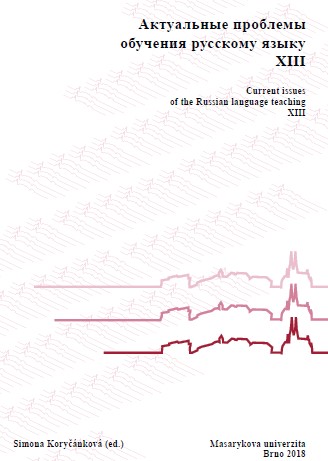ПРЕЦЕДЕНТНЫЕ ТОПОНИМЫ НА ЗАНЯТИЯХ ПО РКИ: ЛИНГВОКУЛЬТУРОЛОГИЧЕСКИЙ АСПЕКТ
PRECEDENT TOPONYMS IN THE RUSSIAN FOR FOREIGNERS: LINGUISTIC AND CULTURAL ASPECTS
Author(s): Irina Bugaeva
Subject(s): Foreign languages learning, Semantics, Eastern Slavic Languages
Published by: Masarykova univerzita nakladatelství
Keywords: toponym; onomastic semantics; associative background; Kremlin; precedent value;
Summary/Abstract: Toponyms are the carriers of cultural and historical information, important for teaching native and foreign language. The Kremlin is widely known in Russia and abroad. This example examines important theoretical issues related to the structure of onomastic semantics, the motivation for the names of intracity objects and the determination of the linguistic and cultural significance of precedent toponyms. The purpose of the study is to describe the lexico-semantic features and linguistic and cultural value and significance of the toponym of the Kremlin in the mentality of Russian speakers and foreigners. The main function of place names is address. Most toponyms perform this single function. The second function is the verbalization of cultural signs. In this case, the ethno-cultural semantics of the proper name is formed. The third function is emotional expressive. Performing this function, toponyms acquire an emotional-evaluative connotation. Scientists are discussing the semantics / asemanticity of toponyms. To resolve this dispute, it is necessary to study the functioning of toponyms, their perception by different groups of native speakers. It is also necessary to take into account the perception and assessment of foreigners who do not know about the historical town-planning tradition of Medieval Russia, for them the Kremlin is a symbol of Moscow and Russia. For non-native speakers, foreign place names are asemantic, if they are not precedent and world famous objects.
Book: Актуальные проблемы обучения русскому языку XIII
- Page Range: 526-533
- Page Count: 8
- Publication Year: 2018
- Language: Russian
- Content File-PDF

